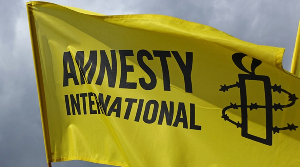Takoradi, July 22, GNA - Mr Kwesi Biney, a former District Chief Executive in the NPP administration, has expressed concern about the undue delay by the government in the reverting of unused lands to its original owners.
Mr Biney, the spokesperson of the "Patriots for the Protection of Western Regional Heritage" said most of these lands had been transferred to private business entities instead of the original owners and indigenes.
Mr Biney said this at a press conference on Tuesday in Takoradi. He cited Ahanta, Nzema and Wassa areas whose large acres of land were acquired by the state and later transferred to the Ghana Rubber Estates Limited (GREL). He said most lands which are lying near entrances to communities and serving as food crop production centres had been taken over by the company.
Peasant farmers have been allocated lands far off within the plantations and this makes the conveyance of food crops difficult and uneconomical to the farmer.
"The worst scenario is the fact that GREL prefers cultivating lands closer to the communities, leaving the distant farmlands for the peasant farmers to cultivate food crops," Mr Biney said. He said the situation, if critically observed and devoid of political biases, would show the level of poverty, deprivation and hunger that such communities would have to endure in the future. "We are therefore appealing to the government to release part of the Ahanta, Nzema and Wassa lands which were acquired compulsorily by the State Farms Corporation but later transferred to GREL for rubber plantations" he said.
Mr Biney expressed concern about the criteria for sharing of the District Assemblies Common fund (DACF) and said there must be a Derivation Factor inclusive in the existing criteria. He said there are five main factors that determine what and how each district should be offered from the fund and stated them as needs, responsive, service pressure, equalizing and poverty. Mr Biney said it was obvious that the criteria mentioned are very applicable to the majority of the districts in the country. Therefore there is no discrimination in favour of those districts which contribute so much to the national economy and to a large extent make so much sacrifice to the development of the nation. He cited the Tarkwa-Nsuaem Municipality for instance as losing all its agricultural lands to multinational companies for surface mining as well as rubber cultivation.
"If this should continue in the next 10 years then the people in the area will be importers of locally produced food items" he said. At Sefwi areas in the region, cocoa which is the backbone of the economy of Ghana, has taken a huge chunk of the land of the chiefs and people.
Mr Biney suggested the establishment of a one billion-dollar Development Fund for the Western Region over the next five years by the government to bridge the development gap between the region and others. This demand would not be too much to ask since it has been possible to establish a GH200, 000,000 and US250, 000,000 for the three northern regions and Volta Region respectively. He said over 60 percent of the nations resources come from the Western Region without the region benefiting from infrastructure. The region's road network is so bad that technocrats have always used rain patterns as an excuse for the non performance in that area. "We are suggesting that the road funds be shared to the district assemblies based on the DACF formula to enable assemblies to decide which of their roads should be given priority for the speedy development of the road sector in the region".
Mr Biney said there was simmering anger among the youth of the region who, like other people, have some expectations in job opportunities in the oil find.
Sadly it has come their notice that even positions for drivers and secretaries in many of the oil related companies that are establishing in the region particularly Sekondi-Takoradi are filled with people from Accra and elsewhere. He said this situation is unacceptable and the earlier a stop was put to it the better for the country but if the trend continues then it would be too dangerous. Mr Biney said it is not to say that other Ghanaians do not have the right to work in the region because the resources is here but it is unfair and a slight on the youth if they are abandoned for others.
Regional News of Wednesday, 22 July 2009
Source: GNA












